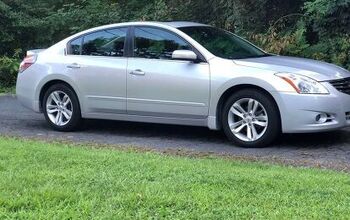Spark-free SkyActiv: Mazda Seems Well Prepared for the Future, Without Electricity's Help

While it wasn’t the only car company to make use of a rotary engine, it was certainly the only one to be competitive with them when pistons and pushrods would easily have sufficed. However, those days are gone. Mazda’s SkyActiv technology is well suited for squeezing out an engine’s true potential, but it doesn’t feel particularly quirky or unique.
That could change with the company’s second generation of SkyActiv engines. Mazda is one of only two automakers planning to introduce a motor with homogenous charge compression ignition (HCCI) sometime next year. If you’re unfamiliar, that’s a direct-injection gasoline-powered motor that uses compression, not spark, to ignite fuel — something typically reserved for diesel powerplants.
Mazda expects the HCCI engine to yield a 30 percent improvement in fuel economy over a similarly-sized conventional internal combustion unit. The new engine should debut in the Mazda 3 as part of its mid-cycle refresh in 2018, and then expand into other models.
According to the Nikkei Asian Review, the second generation SkyActiv engines should give the Mazda3 fuel economy “approaching 30 km per liter.” While only a rough estimate, that equates to over 70 miles to the gallon — enough to put hyper-mile hybrids to shame and meet stringent CAFE standards.
Of course, Mazda also plans to mass produce an electric vehicle by 2019 while it procrastinates on a plug-in hybrid until 2021. The company also remains committed to bringing its extremely emission-friendly Skyactiv diesel to the North American market.
[Image: Mazda]

A staunch consumer advocate tracking industry trends and regulation. Before joining TTAC, Matt spent a decade working for marketing and research firms based in NYC. Clients included several of the world’s largest automakers, global tire brands, and aftermarket part suppliers. Dissatisfied with the corporate world and resentful of having to wear suits everyday, he pivoted to writing about cars. Since then, that man has become an ardent supporter of the right-to-repair movement, been interviewed on the auto industry by national radio broadcasts, driven more rental cars than anyone ever should, participated in amateur rallying events, and received the requisite minimum training as sanctioned by the SCCA. Handy with a wrench, Matt grew up surrounded by Detroit auto workers and managed to get a pizza delivery job before he was legally eligible. He later found himself driving box trucks through Manhattan, guaranteeing future sympathy for actual truckers. He continues to conduct research pertaining to the automotive sector as an independent contractor and has since moved back to his native Michigan, closer to where the cars are born. A contrarian, Matt claims to prefer understeer — stating that front and all-wheel drive vehicles cater best to his driving style.
More by Matt Posky


































Comments
Join the conversation
WoW and Good on Mazda. So many companies had been working on this yet Mazda is cracking the nut first.
Will by outlawed by the Trump administration a few days after he is inaugurated.
Turbo, DPF, Adblue, all the baggage of a diesel on an unproven engine design. I think I'll wait for a while.
It's going to be really interesting to see if they can pull this off. From what I've read, HCCI engines really like to run at a constant speed, making them ideal for a series-parallel hybrid or for use with a CVT.